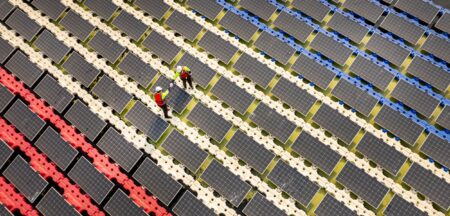 The National Planning Commission (NPC) has called for emergency measures to deal with the energy supply crisis facing South Africa.
The National Planning Commission (NPC) has called for emergency measures to deal with the energy supply crisis facing South Africa.
The NPC said on Wednesday that the goals of the National Development Plan, which it developed, cannot be achieved without energy security and that urgent interventions are needed, including lifting the 100MW cap on private generation projects.
“The most immediate priority is to ensure that new generation capacity is rapidly and urgently brought onto the grid, together with significant new storage capacity. Evidence suggests it is possible to do this within 24 months if 10GW of new generation capacity is rapidly constructed and commissioned as well as 5GW of storage capacity,” the commission said in a statement.
“Solar and wind power projects can be built rapidly within two to three years. Ending load shedding needs to become a unifying national goal for the whole country and all stakeholders,” it added. “Everyone should do their part to achieve this overriding single goal.”
The NPC said an “energy emergency” should be declared “that will make it possible to override some of the red tape that is preventing the acceleration of delivery of new generation capacity”.
Scrap 100MW limit
Specifically, the commission said:
- The 100MW ceiling on private generation that doesn’t require a licence from energy regulator Nersa should be removed because Eskom’s grid code and grid connection authorisation process is sufficient to regulate this growing market.
- Any registration process by Nersa that delays implementation of projects should be scrapped and replaced with an online registration procedure for database purposes only.
- Environmental and water use approvals must be streamlined, to take advantage of the Renewable Energy Development Zone framework that allows for fast-tracking of approvals.
- There must be a temporary exemption from local content requirements for construction and commissioning of new generation and storage capacity due to come online in the next 36 months. “In parallel, key stakeholders should reach a formal agreement that strikes a balance between short-term importation of components with the need for phasing in upstream industrialisation over the medium to long term.” — © 2022 NewsCentral Media




